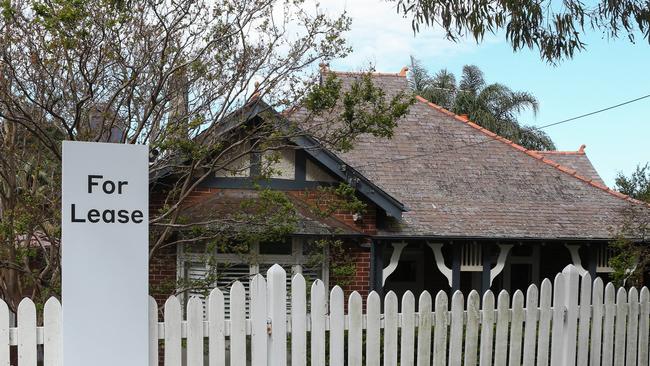Key to negotiating a better rent
There’s a little-known – and effective – step tenants can take to challenge rent rises. Here’s how.
Property
Don't miss out on the headlines from Property. Followed categories will be added to My News.
COMMENT
What can you do if you receive a significant rent increase?
First, check the increase is legal. Both NSW Fair Trading and the Tenants’ Union have great info to help check the form but the key requirement is generally increases have to either come with 60 days’ notice or be written into your fixed-term contract.
In ‘periodic’ agreements rent also can’t be increased less than 12 months since the last increase. Unfortunately back-to-back fixed term contracts can be and are used to get around this – a loophole the government has indicated they will fix.
Next, it’s time to prepare to negotiate or challenge at the Tribunal. Many people are surprised that there is not actually a legal limit on the size of a rent increase in NSW. It is up to you to challenge an increase for being excessive. This is based on an analysis of comparable premises, and the specifics of your own situation.
Comparable rents include for the people around you who haven’t moved recently. It can be useful to check in with your neighbours. Think about how your home compares to others – is it older, bigger, with more or less features that might change the rent? Are there repairs that haven’t been addressed?

The Tenants’ Union of NSW’s Rent Increase Negotiation Kit creates a personalised analysis of recently rented homes and your old and new rent levels. This letter can be a handy guide and is able to be submitted to the Tribunal along with listings.
Armed with your research, consider trying to negotiate by making a counteroffer. Think about what you can afford, and what range of prices make sense given your research.
Make sure you also let the landlord know all of the benefits they will gain by keeping you as a tenant. Do you always pay the rent on time? Keep the property clean? Mention it. Losing you as a result of over-egging an increase does come with a cost of vacancy and uncertainty.
If your offer hasn’t been accepted, think about going to the Tribunal. The good news is by now you should have most of the evidence you need. If you want to go, you need to apply to the Tribunal within 30 days of receiving the notice.
Worrying about the consequences of negotiating is a common concern. Because of no grounds evictions, less than one in every 700 renters who received a rent increase in NSW challenged it at the NSW Civil and Administrative Tribunal over the last year, even though many more have the evidence needed to challenge it.
Reform of evictions without grounds at the end of fixed terms and periodic agreements should be introduced to Parliament soon, but even before it begins to take effect it is still absolutely worth knowing where you stand on rent increases.
*Leo Patterson Ross is the CEO of the Tenants’ Union of NSW and a long-time advocate of tenants’ rights.




